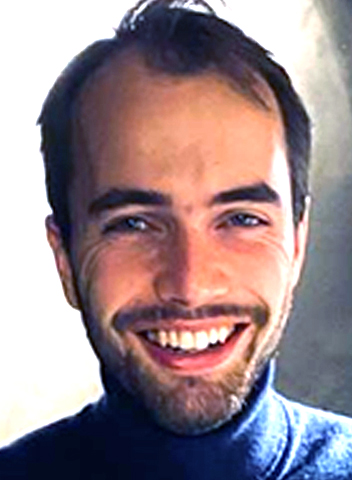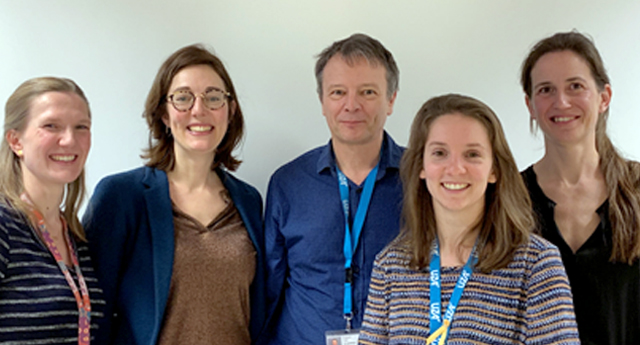Clinical Research Grant
The prize is awarded to non-commercial projects for clinical research in the field of cardiovascular pathology.
The research must be centred on the patients and aimed to determine the role of medication, intervention, diagnosis, symptoms or prevention in the physiological or pathological processes of the cardiovascular system.
2024 Guido Claessen - UZ Leuven
Assessment of polygenic background to explain the association between small heart size and low cardiac fitness (GEN@HEART)
2024 Andreas Gevaert - UZA
ECSPAND: Exercise capacity improvement by Conduction System Pacing in heArt failure patieNts without compelling CRT inDication
2024 Philip Moons - KU Leuven
Unraveling the role of retinal imaging as a clinical tool in evaluating accelerated aging in congenital heart disease
2023 Caroline Van De Heyning – Antwerp University Hospital
The value of 7-day rhythm surveillance as a novel tool for risk prediction in acute myocarditis
2023 Ines Joye - GZA vzw Ziekenhuizen
Cardiac stereotactic radiation treatment for the ablation of ventricular tachycardia
2023 Constantijn Franssen - Antwerp University hospital
The incidence of cardiovascular events and revascularizations in patients treated with Immune Checkpoint Inhibitors in Belgium
2022 Jan De Pooter – University Hospital of Gent
Conduction system pacing: a bench and bedside study. Insights in cardiac conduction disease translated to novel pacing strategies
2021 Henri Gruwez - UZ Leuven
SURGICAL-AF 2 study: the clinical impact of remote heart rhythm monitoring by photoplethysmography-based smartphone technology in the rehabilitation after cardiac surgery. A randomized, open-label, multicenter, pragmatic clinical trial.
Atrial fibrillation (AF) is a cardiac arrythmia in which the atria of the heart (front chambers of the heart) lose their ability to contract in synchrony with the heart. This results in an irregular heartbeat. AF is the most common cardiac arrythmia and is important because it is associated with negative outcomes such as heart failure, stroke and mortality.
Up to 60% of patient who underwent cardiac surgery develop AF. Post-operative atrial fibrillation is known as POAF. Often this arrythmia occurs in episodes which start and cease spontaneously. These episodes can remain undetected as they are often asymptomatic. In hospital the heart rhythm is monitored for arrythmias. But to date there is no rhythm surveillance at home after discharge.
Rhythm surveillance after discharge from cardiac surgery will enable early POAF detection which leads to three major benefits. At first, patient with POAF can be treated with blood thinners to reduce stroke risk. Secondly, early detection of AF enables early rhythm control which is associated with superior outcomes. Thirdly, patients often develop POAF as a result of an underlying substrate. After cardiac surgery the underlying substrate is often a post-operative adverse event. By monitoring for POAF we will simultaneously be monitoring for post-operative adverse events enabling earlier detection and treatment of post-operative adverse events.
In the SURGICAL-AF 2 trial we will monitor the heart rhythm after discharge in patients who underwent cardiac bypass surgery or surgery of the heart valves. Monitoring will be performed using a smartphone application. The patient can analyze his or her heart rhythm simply by placing a finger on the smartphone camera. An automatic algorithm will provide feedback to the patient. When an abnormal rhythm is detected an early follow up visit shall be organized. This surveillance strategy provides a reliable, patient centred and cost-effective post-operative rhythm monitoring for POAF.
The SURGICAL-AF 2 study will evaluate if post-operative rhythm monitoring is better than the classical follow-up. It investigates the incidence of POAF and the effect of POAF surveillance on therapy changes, readmissions and healthcare related quality of life. It the SURGICAL-AF 2 trial is successful, the study will also investigate a potential effect on long term stroke occurrence and mortality.

Henri Gruwez
2020 An Van Berendoncks - UAntwerpen
Prevention of recurrence of hypertensive pregnancy disorders in women with active desire for pregnancy, a randomized controlled trial: a smartphone-based aerobic exercise training program during pregnancy versus usual care
Preeclampsia (PE) is characterized by hypertension and organ-damage during pregnancy. Moreover, it has been shown that PE is a systemic disease affecting blood vessel function in the whole body with considerable risk for future cardiovascular disease. Therefore, there is a need for specialized Women’s Heart Clinics, where a multidisciplinary approach is adopted in the referral, diagnosis, treatment and follow-up of these patients. Currently, in PE patients, there is an unmet need of preventive measures to prevent 1) PE recurrence and 2) the development of cardiovascular disease later in life. With this project, we hypothesize that exercise training during pregnancy minimizes the risk of PE recurrence and long-term risk for cardiovascular disease through improved vascular health.

Team An Van Berendoncks

An Van Berendoncks